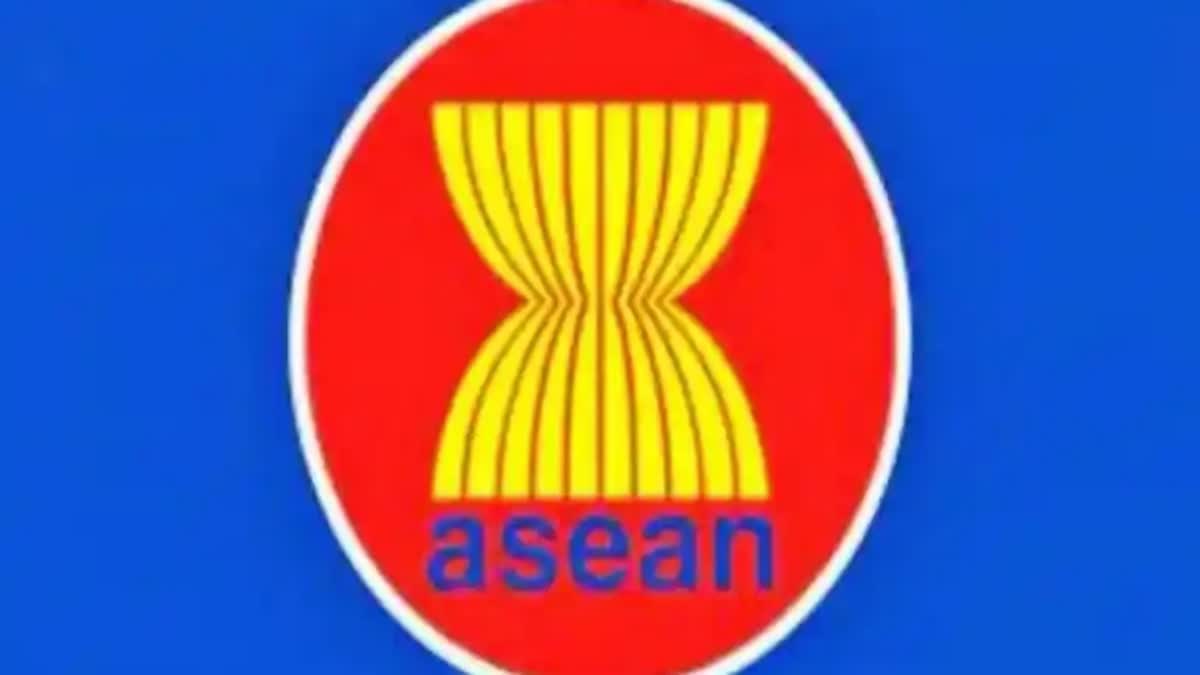New Delhi: A crucial pillar of cooperation between India and the Association of Southeast Asian Nations (ASEAN) is to ensure an open, inclusive and rules-based Indo-Pacific, a region that stretches from the east coast of Japan to the east coast of Africa.
To achieve this objective, two mechanisms have been put in place. One is the India-initiated Indo-Pacific Oceans Initiative (IPOI) and the other is the ASEAN Outlook on the Indo-Pacific (AOIP). The two initiatives complement each other in multiple ways, particularly in promoting maritime security, stability, and cooperation across the Indo-Pacific region.
Addressing the media here on Wednesday ahead of Prime Minister Narendra Modi’s visit to Vientiane, Lao PDR, to attend the 21st ASEAN-India Summit and the 19th East Asia Summit, Secretary (East) in the Ministry of External Affairs Jaideep Mazumdar said that Modi had announced the IPOI during the 14th East Asia Summit in Bangkok in 2019.
“Since then we have built convergences with the ASEAN’s own outlook for the Indo-Pacific, and we work closely with ASEAN countries on this,” Mazumdar said. “Three ASEAN countries - Indonesia, Thailand and Singapore - and three East Asia partners - the United States, Australia and Japan - are our partners in the IPOI.”
What is the IPOI?
The Indo-Pacific Oceans Initiative is an initiative of the Government of
India and builds upon the Security and Growth for All in the Region (SAGAR) vision announced by Prime Minister Modi in 2015. SAGAR encourages states to cooperate and synergise efforts towards a safe, secure and stable maritime domain as also take meaningful steps for the conservation and sustainable use of the maritime domain.
The IPOI is premised on the liberal theoretical vistas and endorses an open, inclusive, non-treaty-based global initiative for mitigating challenges especially in the maritime domain through practical cooperation. It seeks to build a sense of community by creating new partnerships with like-minded countries through practical cooperation. India is encouraging other countries to join the IPOI and also lead some thematic areas under the initiative. It builds on existing frameworks like the East Asia Summit mechanism, which includes the 10 ASEAN member states and their eight dialogue partners. The 10 ASEAN member states are Brunei Darussalam, Cambodia, Indonesia, Lao PDR, Malaysia, Myanmar, Philippines, Singapore, Thailand, and Vietnam. East Timor has recently been given observer status in the bloc. The eight partner countries for the East Asia Summit are Australia, China, India, Japan, South Korea, New Zealand, Russia and the US.
According to Prabir De, Professor at the New Delhi-based Research and Information System for Developing Nations (RIS) think tank and an expert on ASEAN, the IPOI is basically an outcome of India’s interactions with the Quadrilateral Security Dialogue, commonly known as the Quad. Comprising India, the US, Japan and Australia, Quad works to ensure a free and open Indo-Pacific in the face of China’s hegemony in the region.
“Since the Indo-Pacific also comprises countries in the ASEAN, countries in East Asia, Southeast Asia, India wanted to launch more action-oriented programmes,” De told ETV Bharat. “That is why the IPOI was thought about.”
The IPOI comprises seven pillars that cover a wide spectrum of issues spanning the ‘security-development-capacity building’ continuum in diverse areas spanning security, safety, resource development, science and technology, resilient infrastructure and marine environment-ecology.
The seven pillars of the IPOI are:
- Maritime security
- Maritime ecology
- Maritime resources
- Capacity building and resource sharing
- Disaster risk reduction and management
- Science, technology and academic cooperation
- Trade, connectivity and maritime transport
